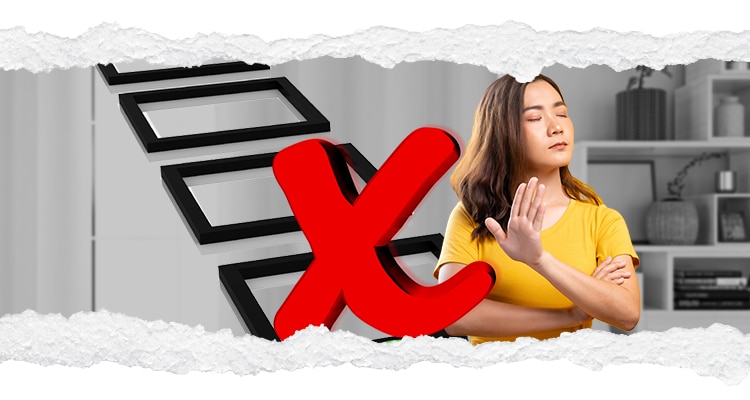Of all the interview questions, “What are your greatest weaknesses?” is probably the trickiest to answer.
At first glance, it’s a straightforward question.
The problem is, how do you do that without decreasing your chances of being hired?
Answer this a little too honestly, and you risk ruining your chances of landing that work from home job.
However, if you skirt around it, you risk coming off as dishonest.
So, what’s the best way to answer: “What are your greatest weaknesses?”
Here are some tips -and examples- that can help.

Be Honest
Remember, your interviewer asks this question mainly to test your character and self-awareness. They want to gauge your honesty about your abilities and whether you’re open to opportunities to grow and improve.
Thus, to make a great first impression on your interviewer, be honest and talk about a real weakness you believe you have – and how you plan to address it.

Choose a Legitimate Weakness
It’s tempting to answer this question by posing a strength as a weakness, like being a “workaholic” or “perfectionist.”
However, interviewers have heard this response so many times that they’re wary of it.
Here are some examples of weaknesses you can mention during your interview:
- Possesses limited experience in a specific skill
- Struggles with work-life balance
- Timidity
- Lacks patience
- Struggles with delegating tasks
- Asking for help is a challenge
- Takes too many risks
- Uncomfortable with providing constructive criticism
- Unfamiliar with a particular software
You can refer to any of these and then specify how these relate to you.

Pick a Weakness That Won’t Disqualify You As a Candidate
Avoid talking about a weakness that’s detrimental to the job you’re applying for.
For example, if you’re applying for an online design job, you don’t want to say you have poor drawing skills.
On the other hand, don’t just mention an irrelevant weakness either.
Instead, discuss a weakness that, although relevant to the position, isn’t particularly an obstacle and most importantly, can be corrected through conscious effort and training.
Let’s say you’re applying for an online transcription job. You can mention not being familiar with a particular software while emphasizing the steps you’re taking to rectify that, like watching YouTube videos on how to use it.

Treat Your Weakness as an Opportunity for Growth
Aside from knowing your limitations, your interviewers also want to know how you plan to address your weaknesses.
First, cite an example of how your weakness has affected your career, then quickly follow it up by discussing what you’re doing to overcome it. Doing so shows that you have a growth mindset and willingness to adapt.
For example, if you’re struggling with timidity, explain how you’re making the effort to speak up more during meetings to help you build confidence.

Keep Your Answer Brief
You don’t want to spend precious time addressing your weaknesses during your interview.
Thus, keep your response brief and focus on how you’re overcoming these challenges.
Here’s a format you can use to answer: “What are your greatest weaknesses?”:
- State your weakness/es
- Mention a minor consequence of said weakness/es
- What you’re doing to overcome it

Sample Answers to this Interview Question
Now, let’s apply these points to generate some sample answers:
Sample 1
“One of my main weaknesses is that I find it hard to say “no” to people. I strive to please everyone on my team, and in doing so, I end up taking on extra work despite being stretched too thin already.
To address this, I’ve been working on setting boundaries and finding ways to say “no” without upsetting my teammates, improving my ability to focus on my core responsibilities.”
Sample 2
“One of my current challenges is my lack of experience with apps like WordPress.
Before, I’ve had other specialists publish my articles for me, which led to errors and delays.
One of my main goals this year is to learn how to use WordPress and publish my articles myself.”
Sample 3
“I used to think asking for help made me look weak or incompetent at my job.
This led to a rookie mistake on an assignment once.
Since then, I’ve learned that it’s perfectly normal to ask for help when needed.
I’ve been practicing this in settings outside work, so I’m more comfortable asking for help from my boss and co-workers.”

Turning Weaknesses to Strengths
Discussing your weaknesses during your interview can be daunting if you don’t know how to prepare for them.
Fortunately, by following the tips above, you’ll have an easier time answering: “What are your greatest weaknesses?” and acing your interview.
If you’re still looking for openings that offer an online work from home setup, Remote Staff is here to help.
Our jobs list contains plenty of openings for you to choose from, so you’ll never run out of options.
So, what are you waiting for? Sign up here. Good luck!

